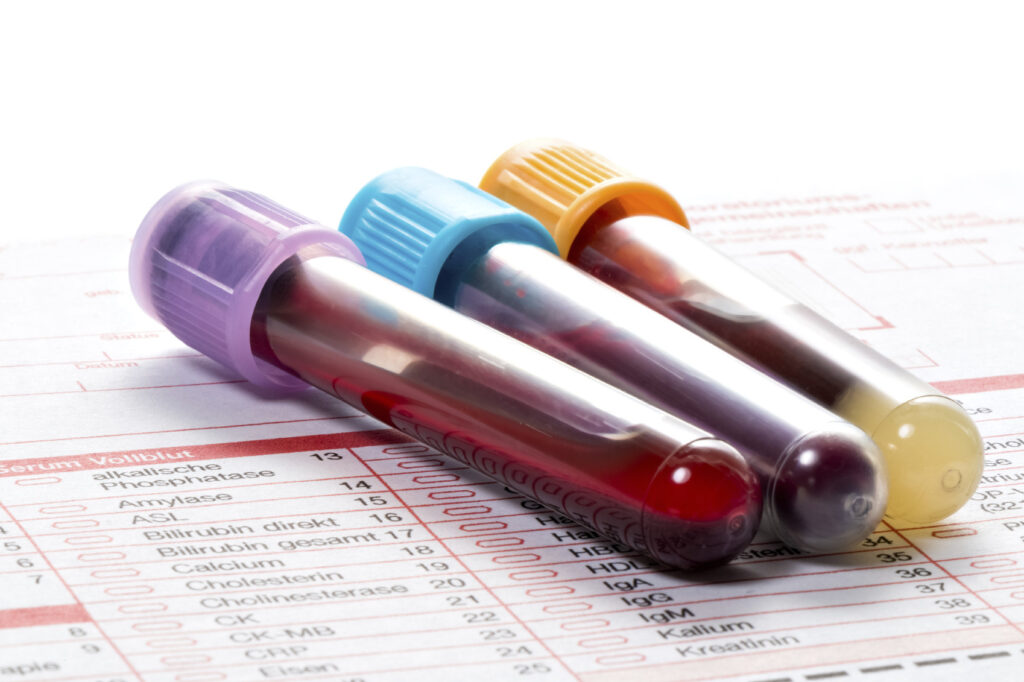Essential Insights: What Doctors Want You to Know About the Revolutionary New Blood Test for Alzheimer’s Disease
The blood test was 90% accurate in the study.
Blood Test for Alzheimer’s Disease
Alzheimer’s disease affects more than 6 million Americans, gradually eroding memory and cognitive abilities until even simple tasks become impossible. Traditionally, diagnosing Alzheimer’s has been a challenge, often requiring invasive and expensive procedures. However, recent research offers a promising new approach: a blood test that could accurately diagnose Alzheimer’s disease with remarkable precision.
The Breakthrough in Alzheimer’s Diagnosis
A study published in JAMA highlights the effectiveness of a new blood test, known as the Amyloid Probability Score 2 (APS2), in diagnosing Alzheimer’s disease. The test demonstrated a 90% accuracy rate in identifying the disease, making it a potentially game-changing tool for early diagnosis.
The research involved around 1,200 participants experiencing mild memory problems. Of these, 300 patients were administered the APS2 blood test, with their results compared against more traditional diagnostic methods like spinal taps and PET scans.
Interestingly, the study also evaluated the diagnostic accuracy of primary care doctors and memory specialists. Primary care doctors were found to be incorrect in their Alzheimer’s diagnoses 36% of the time and missed the disease in 41% of cases. Memory specialists fared slightly better, with a 25% error rate in diagnoses and a 29% rate of missed diagnoses. In stark contrast, the APS2 blood test was only wrong 10% of the time.
How the APS2 Blood Test Works
The APS2 blood test, marketed as PrecivityAD2, analyzes specific blood biomarkers associated with Alzheimer’s disease—namely APS2 and p-tau217. “By analyzing these biomarkers, the model calculates a score, known as the Amyloid Probability Score 2 (APS2), which ranges from 0 to 100,” explains Michal Schnaider Beeri, Ph.D., director of the Herbert and Jacqueline Krieger Klein Alzheimer’s Research Center at Rutgers University. This score indicates the likelihood of amyloid plaques being present in the brain, which are a hallmark of Alzheimer’s disease.
The test is available in the U.S., but it’s not yet part of the standard diagnostic process. The procedure is straightforward: a simple blood draw, after which the sample is sent to a lab for analysis. Doctors then receive a result indicating whether there is a high or low probability of amyloid plaques in the brain.
Who Should Consider the APS2 Blood Test?
Currently, there are no established clinical guidelines for when or how to use the APS2 blood test. It’s also important to note that the test is less accurate in the earliest stages of Alzheimer’s, with its highest accuracy observed in patients already experiencing dementia. Nonetheless, the potential for early diagnosis and improved patient management makes the test an attractive option for many.
“This could significantly improve early diagnosis and patient management, ideally providing earlier access to treatment,” says Verna Porter, M.D., a neurologist and director of the Dementia, Alzheimer’s Disease, and Neurocognitive Disorders program at Pacific Neuroscience Institute in Santa Monica, CA.
The Future of Alzheimer’s Diagnosis
While the APS2 test shows great promise, it’s not the only diagnostic tool available. Over the past two decades, advancements in PET scans and cerebrospinal fluid analysis have revolutionized Alzheimer’s diagnosis. “We now have excellent diagnostic results using certain types of PET scans or by measuring cerebrospinal fluid,” says Matthew Schrag, M.D., Ph.D., assistant professor of neurology at Vanderbilt University School of Medicine. However, these methods are expensive and not widely accessible.


Dr. Schrag notes that other blood tests for Alzheimer’s are also under development, many of which detect forms of beta-amyloid and tau proteins in the blood. He describes the results of the APS2 test as “impressive,” but cautions that they should not replace a comprehensive medical evaluation. “The results need to be interpreted in the context of patients’ symptoms,” he explains.
Dr. Porter emphasizes the need for further research to determine the best use of these tests. This includes evaluating whether early diagnosis through blood tests leads to better treatment outcomes and overall healthcare efficiency.
While the APS2 test was studied in a Swedish cohort, Dr. Schrag stresses the importance of validating these findings across diverse populations. “Nevertheless, this is a promising result and hopefully will be thoroughly validated and available in the clinic in the near future,” he says.





